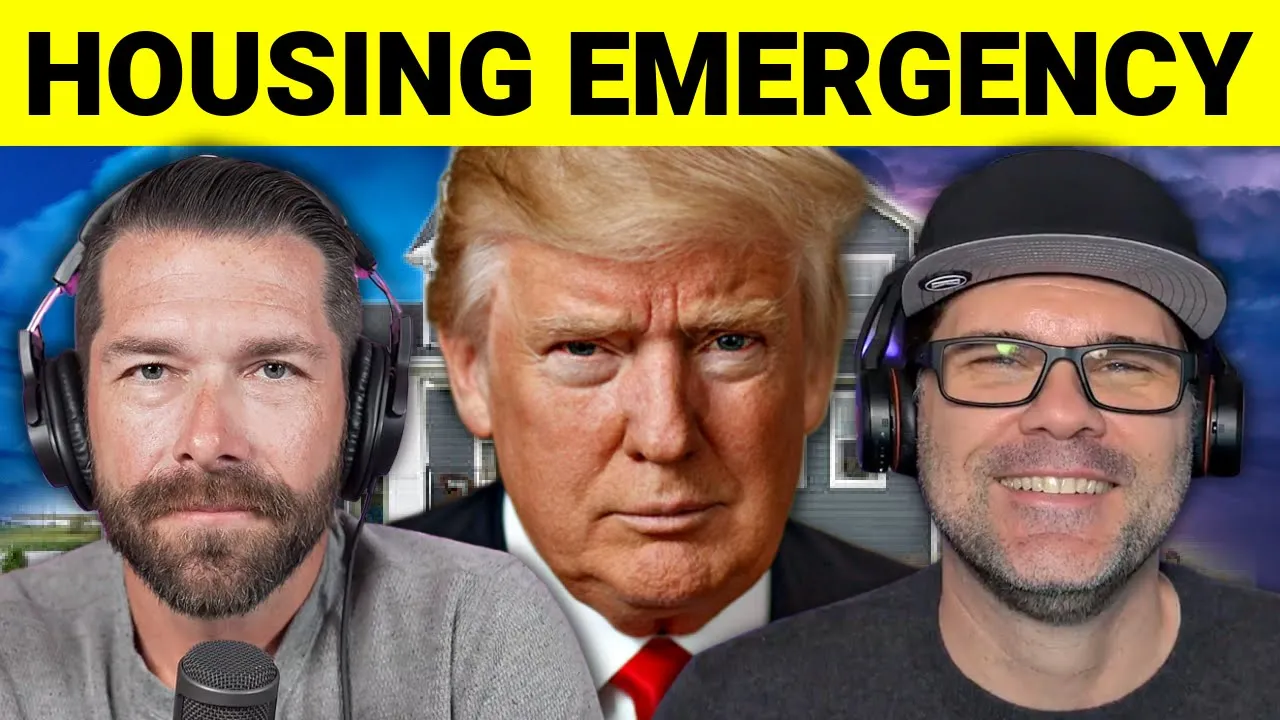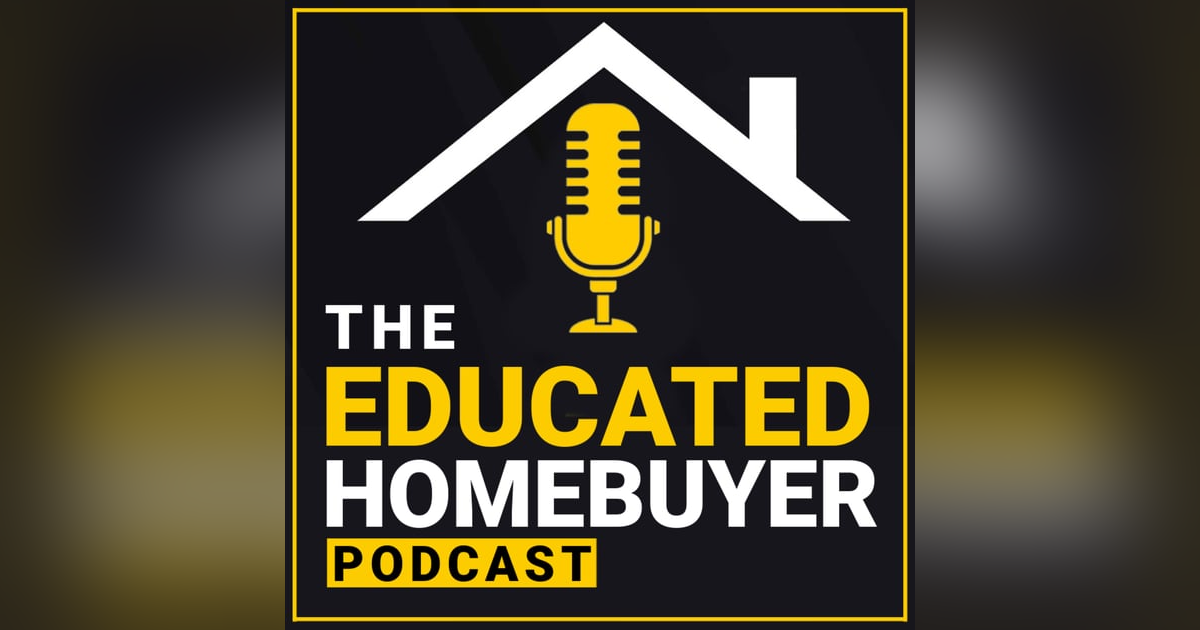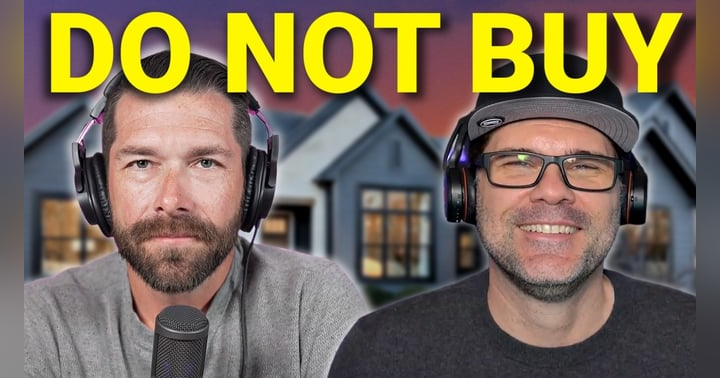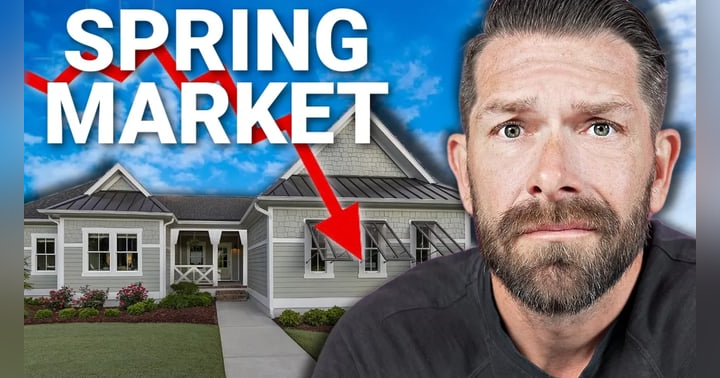Will a National Housing Emergency Actually Make Homes More Affordable?

Will a National Housing Emergency Actually Make Homes More Affordable?
The White House is flirting with the idea of declaring a national housing emergency—a phrase that sounds dramatic, grabs headlines, and turns heads. But does it actually mean relief is coming for homebuyers? Or is it another political stunt during an election year?
In this episode of The Educated Homebuyer, Jeb Smith and Josh Lewis break down what a national housing emergency would actually do, where it would fall short, and what practical changes might actually help affordability in the next 1–3 years.
Watch the Episode
Call to Action: If you’re confused or overwhelmed by the current housing market, you’re not alone. Click the link in the YouTube description to talk with us directly—whether you're buying your first home or just trying to understand your options, we’re here to help.
Why Are We Talking About a National Housing Emergency?
Median home prices have jumped 50% in the past five years—from $297K in 2020 to $441K in 2025. Today, over half of U.S. metro areas require a six-figure income to qualify for a mortgage. That’s not sustainable.
Even Treasury Secretary Scott Bessent admitted that there are no specifics yet, only that "everything is on the table." But what does that actually mean—and can any of it help soon?
What Is a National Housing Emergency?
Declaring a national emergency gives the President broad powers to act without Congressional approval. It’s been used for major crises—9/11, COVID, and more. But using it for housing? That’s a much murkier situation.
Most housing policy—especially the kind that affects building, zoning, and permitting—is decided at the state and local levels. That means federal action could be more symbolic than impactful.
Federal vs. State Control
Even if the federal government pushes through housing reforms, states like California could resist—especially if the initiative is politically charged. As Josh put it, "California’s resistance often has less to do with policy and more to do with politics."
What's Actually Being Proposed?
Here’s a breakdown of what’s currently being discussed:
1. Lowering Closing Costs
This could help buyers slightly—especially in states with high title fees or transfer taxes. But it’s a drop in the bucket compared to overall affordability challenges.
2. Expanding the Capital Gains Exemption
Currently, homeowners can exclude up to $500K of gains on their home sale. That number hasn’t been updated since the 1990s. Raising it could free up inventory as older homeowners feel less tax-locked.
3. Auctioning Federal Land for Housing
There’s support for building on unused federal land near major cities. The potential: up to 3 million new homes. But environmental pushback and political opposition could stall this indefinitely.
4. Streamlining Zoning & Permitting
This is one of the most impactful solutions—but also one of the hardest to enforce federally. Even with emergency powers, overriding state laws will be challenged in court.
5. Executive Action to Override State Barriers
Could it happen? Yes. Would it be challenged in court? Absolutely. Expect political and legal resistance, especially from high-cost, high-regulation states.
Can Any of This Help Buyers in the Next 1–3 Years?
Jeb and Josh agree—not likely. Even if reforms pass, implementation will take years. The one exception might be the capital gains change, which has bipartisan appeal and could move quicker.
The Real Key to Affordability: Mortgage Rates
As Jeb notes, no emergency action can lower mortgage rates. That’s the Fed’s job—and it’s still fighting inflation. Even if a future president tried to pressure rate cuts, the Fed remains independent.
So What Can You Actually Do?
- Focus on what you can control: your budget, your timeline, your strategy
- Watch rates and be ready to act when the right home appears
- Don’t wait for Washington to fix affordability—it won’t happen fast
Image Placeholder
Image Idea: Giant red “National Housing Emergency” button with confused first-time buyers surrounding it.
Alt Text: Homebuyers reacting to national housing emergency announcement
Final Thoughts
If you’re looking to buy, the best path forward is still personal strategy—not political hope. And if you need help walking through your numbers or understanding what’s realistic for you—reach out using the link in the YouTube description.
Stay Connected
- 📺 Subscribe to the podcast on YouTube
- 📤 Share this with a friend who’s house-hunting
- 👍 Smash that like button to support the show


